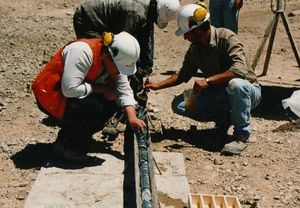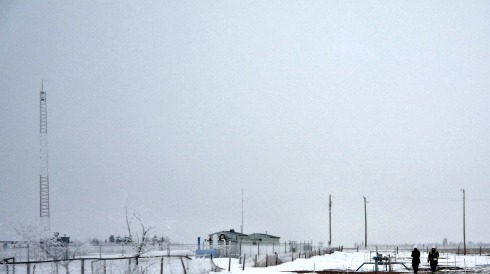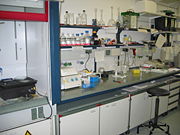- Air Homepage
- About Us
- Environmental Certifications
Your Career: The Power of Environmental Certifications
Find more career information.
The Environmental certifications program gives new professionals with some experience a chance to advance quickly. Are you an environmental scientist looking for the right ecological job and to advance your career?
Find out how relevant certifications can help you advance your career. This page shows you the Canadian Certified Environmental Practitioner (CCEP) program and the Canadian Environmental Certification Approvals Board (CECAB).
Discover how these certifications can boost your professional credibility, open doors to new opportunities, and ensure your competence in the ever-evolving field of environmental science. Learn why available certifications are important for a sustainable future.
You might be a good fit for the Canadian Environmental Certification Approvals Board, CECAB. We need a way to acknowledge environmental specialists within their own jurisdictions, and maybe even internationally.
To serve that purpose, Canada has the Canadian Certified Environmental Practitioner (CCEP) program. But According to CECAB.ORG: On August 1, 2010, all of the previous designations merged under the credential EP – Environmental Professional, with specializations to recognize a specific area of work.
It lets the expert in the field briefly state, in these two letters, that they've been a true professional for at least five years. Environmental certifications let even new workers prove they're on the right track, using the EPt designation to indicate training status.
"The certification is based on a practitioner's ability to do certain environmental work activities, to have sufficient experience doing them and being able to perform them competently," according to the board's website, cecab.org.
There are national standards for this select group of multidisciplinary environmental occupations. All prospective inductees submit their qualifications for comparison to this list, have their statements verified by online interviews with their peers, and pass other stringent requirements. A Canadian Certified Environmental Practitioner is added to the register once that's done.
Example of Field Work
Why Bother with environmental certifications?
It's a bit technical and hard to explain. When it comes to proving their effectiveness, new workers need all the help they can get.
Is this something you'd be interested in? I'll use myself as an example. As I developed my career, I wanted to:
- Demonstrate my professional trustworthiness to anyone who's interested.
- Recognize my abilities and integrity quickly
- Being able to proudly display a well-known symbol that others can use to identify my scientific skills.
- Be confident when you're looking for contracts, liability insurance, and networking opportunities.
Why would someone choose this organization? It's a neat and complete package. Builds the world's best environmental workforce. CECAB protects the fairness of the profession (and handles certification details and renewals) while ECO Canada oversees environmental certifications.
The whole field of environmental science and service is growing, and will continue to do so. Prior to recently, most environmental work was considered a black art, especially in my area of specialty, air quality
Using the CECAB list of standard skills, universities can prepare new entrants to this field based on what employers want. The bar can also be raised as needed, elevating Canadian environmental professionals to the top.
Employers can select employees more efficiently with environmental certifications. Afterwards, they can pick staff scientists who have passed tough requirements in previous situations. Protecting our natural resources and caring for the environment starts with a competent workforce.
If you're looking to further your career:
- You want recognition for your skills
- It's good to be able to compare yourself to other professionals
- You want your experience and commitment to matter
- You want to get a better job
- If you need to move from one job to another, you want flexibility
- Ideally, you'd like to increase your own credibility.
Environmental regulations and related work are always changing, so professional development is a constant. Based on the profile of skills kept on file, CECAB gives advice to EPs. Basically, they recommend what "competencies they should refresh on an annual basis." This is good for the practitioner, the employer(s) and society.
Code of Ethics
We've got to have one. Check out these general principles in the environmental certification board's standards of practice.
- Responsibility for public safety, environmental stewardship
- Integrity in work, high ethical standards
- Everyone's safety and welfare
- Competence
- Confidentiality
- Conflict-of-interest avoidance
- Efficiency and diligence
- Representing skills and services honestly
- Continuous professional development, Kaizen
- Conduct that's fair
- Respect the different EP designations.
The CECAB literature also lists the EP Advantage points. The certification "officially recognizes environmental expertise, establishes professional credibility at a national level, verifies on-the-job competence, enhances practitioners' marketability and mobility; and assures professional conduct."
CECAB also handles all disciplinary action related to EP Code of Ethics violations. It's good to know someone's watching. Environmental Certifications. Do you need anything else?
Our air quality consulting firm, Calvin Consulting Group Ltd., has all EP certifications from CECAB. We're proud of it. Would you like to know more about my work? Send your question to this address...
Navigate back from Environmental Certifications to the Air Quality Testing page now.
Search this site for more information now.
Do you work in the field of air quality?
Many environmental science fields, such as air quality, did not exist decades ago. Now they are common and deserve formal recognition. Environmental certifications make that possible.
Do you have concerns about air pollution in your area??
Perhaps modelling air pollution will provide the answers to your question.
That is what I do on a full-time basis. Find out if it is necessary for your project.
Have your Say...
on the StuffintheAir facebook page
Other topics listed in these guides:
The Stuff in the Air Site Map
And,
Thank you to my research and writing assistants, ChatGPT and WordTune, as well as Wombo and others for the images.
GPT-4, OpenAI's large-scale language generation model (and others provided by Google and Meta), helped generate this text. As soon as draft language is generated, the author reviews, edits, and revises it to their own liking and is responsible for the content.







New! Comments
Do you like what you see here? Please let us know in the box below.